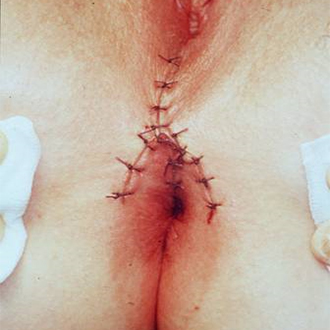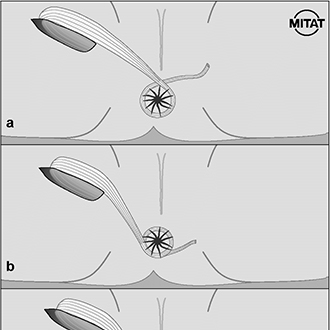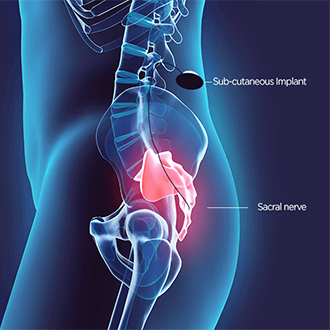You control when you go to the toilet using muscles (called sphincter muscles) and nerves in and around the rectum and anal canal. When you need to pass a stool, the nerves send a message to the sphincter muscles telling them to relax and open the anus.
If this is inconvenient, for example, because you cannot get to a toilet, the brain sends a message to stop the muscles relaxing. You usually aren’t aware of doing this until the rectum becomes very full and a conscious effort is needed to keep the anus closed.
If the muscles and nerves do not work properly, bowel incontinence can develop. This can be caused by a number of factors:
Diet
Anything that makes your faeces more liquid – for example, beer – can make it harder to hold in. Foods that increase flatulence (wind) can also cause leakage, as the anus has to relax to let outgas.
Irritable bowel syndrome (IBS)
In IBS the bowel muscle is very sensitive and squeezes very strongly, which can be hard to control. You may find you have to rush to the toilet when you have the urge to pass stools, or even when you pass wind, as this can sometimes cause leakage.
Childbirth
After childbirth, one in ten women has problems controlling when they pass wind or stools. It’s more common in older mothers (35 and over), and women who have large babies. The problem can develop if the anal muscle tears during birth, or because of the episiotomy cut that is made to help deliver the baby.
Age
The sphincter muscles get weaker with age, which can make it harder to control when you go to the toilet. Older people with mental health conditions such as dementia may also have trouble recognising when they need to pass stools.
Constipation
Constipation happens when hard faeces build up in the lower bowel. Watery faeces can leak round them and be difficult to control. Constipation is often the real cause of bowel incontinence especially in elderly people.
Medication
Certain medications, for example those containing magnesium trisilicate, make the faeces looser or cause diarrhoea. Over-use of laxatives can also have this effect. Consult your GP if you think your medication could be causing the problem, as they may be able to suggest an alternative.
Diarrhoea
Loose stools are more difficult to control than solid stools.
Injury or damage to the sphincter muscles or nerves
This can happen during childbirth, following surgery, or as a result of neurological (nervous system) conditions such as stroke, epilepsy and multiple sclerosis.
Lower bowel disorders
Conditions such as haemorrhoids, cancer and anal fistula/ fissure can also lead to bowel incontinence





